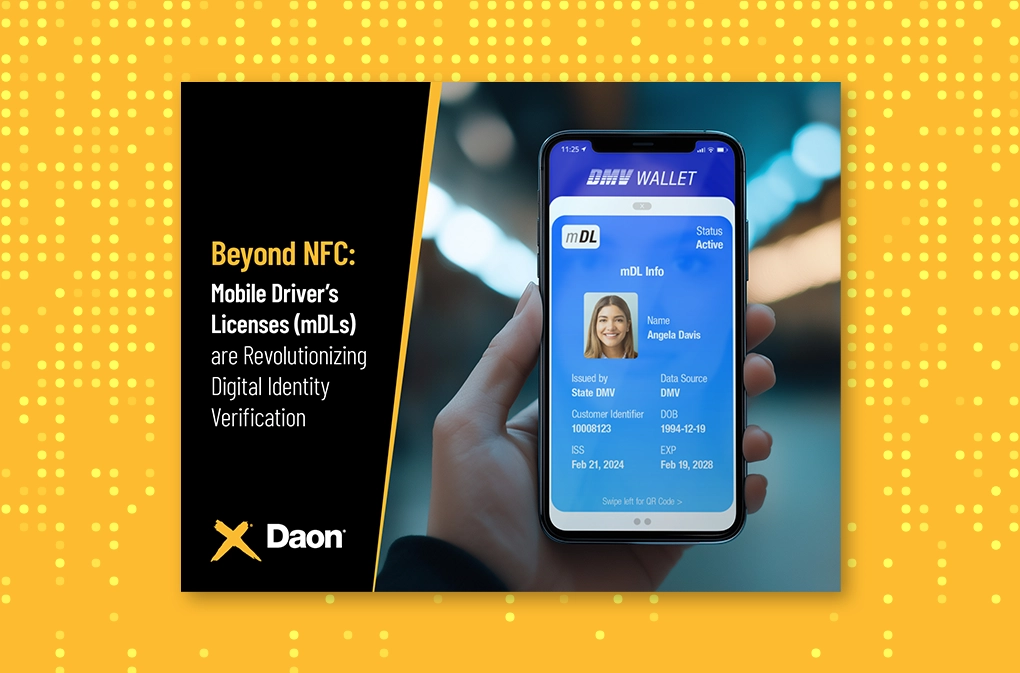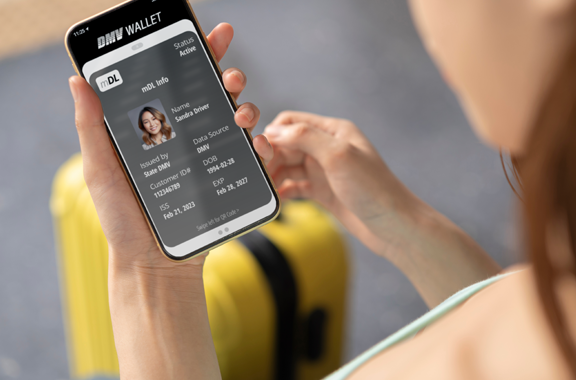Mobile Driver’s License (mDL)
The transition from physical to digital credentials is in full swing, and mobile driver’s licenses are leading the way. Over 10% of the countries in the world have already begun to implement mDLs, and several others have voiced their intention to do so. At the same time, the International Organization for Standardization (ISO) has been hard at work developing standards for global compliance to ensure both physical and digital useability.
An mDL is an mdoc-format secure digital credential that stores a driver’s license in a mobile wallet, enabling secure identity verification and data transmission via NFC, Bluetooth, WiFi, and the Internet.
mDLs contain the same essential personal information as a physical driver’s license but, due to being stored and transmitted digitally, offer a number of advantages over physical documents. The primary advantage to businesses is the level of trust and the quality of the data an mDL presents. Personal data from an mDL is provided by an authoritative government source, encrypted, and locked to the device wallet by the issuing agency. When presented to a relying party, the mDL can be verified through digital signatures to confirm that the data has been transferred, untampered, from the original source and is presented only by the wallet to which it was originally issued. The digital wallets that store the mDL use device-based biometric authentication to ensure that only the device owner can view and share the mDL’s data. Thanks to real-time updates, businesses can also be assured that customers present the most current information.
Beyond simplicity, the greatest benefit mDLs provide to consumers is selective disclosure functionality, allowing for the sharing of only necessary details (e.g., age verification without revealing sensitive personal information). This is also a benefit to businesses as it minimizes the amount of PII the business must manage, simplifying compliance and reducing risk.
From proof of identity and authorization at traffic stops to proof of age for restricted transactions to online identity verification, mDLs provide a seamless and reliable solution.
Interested in learning more about mDLs?
Frequently Asked Questions
What are the business advantages of using mDLs for identity verification?
While Daon’s technology offers a number of methods for validating physical ID documents, mDLs add a significant level of trust by being nearly impossible to forge, alter, or steal. They also provide the added value of allowing the capture of only the data required to complete the verification, minimizing the amount of sensitive data that needs to be managed.
How do mDLs improve the identity verification process?
It’s a combination of speed and accuracy. Daon’s technology can accurately verify a user’s identity with a physical ID scan, NFC scan, or mDL, but an mDL is notably faster and easier for the customer, requiring just a few clicks. The data gathered is guaranteed to be completely accurate as it is transferred digitally from the source and not converted from an image. Additionally, since the encrypted data comes from an authoritative source, checks against other sources are unnecessary.
My location currently doesn’t offer mDLs. Why should they matter to me?
In short, they are coming. Projections show that by the end of 2026, over 650 million people will use mDLs, and while it may take a decade or more for complete market saturation, businesses need to adapt to support early adopters.








